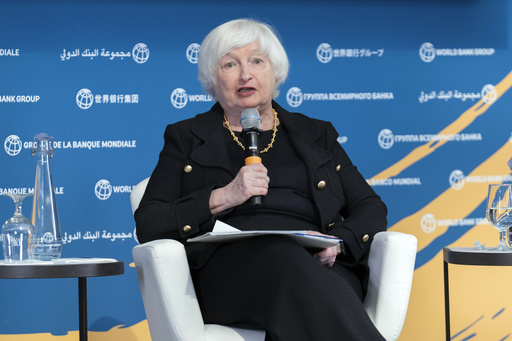
“`html
On Thursday, the United States imposed economic sanctions on several prominent individuals tied to the armed faction of a Mexican drug cartel operating within the border regions of Chihuahua, Mexico. These sanctions target five Mexican nationals and two companies associated with La Linea, a notorious drug trafficking organization known for smuggling fentanyl and other synthetic drugs into the U.S. on behalf of the Juarez Cartel, which is a transnational crime syndicate.
This recent measure aims to disrupt a major supply chain of fentanyl entering the United States, with fentanyl being recognized as one of the most lethal drugs currently affecting the nation. According to the Centers for Disease Control and Prevention (CDC), the rate of drug overdose deaths in the U.S. experienced more than a sevenfold increase from 2015 to 2021, although a slight 3% decline in such fatalities was noted this year.
In the last two years, the U.S. Treasury Department has sanctioned over 350 individuals and entities linked to drug trafficking, spanning cartel leaders to laboratories and suppliers. The Drug Enforcement Administration (DEA) has identified Mexico and China as the main sources of fentanyl and its analogs being trafficked directly into the U.S. Almost all precursor chemicals required for the synthesis of fentanyl originate from China.
La Linea and the Juarez Cartel have built a reputation for extreme violence against civilians. U.S. efforts to bring them to justice have included significant legal actions; notably, in July 2022, a federal judge in North Dakota ordered La Linea to pay $4.6 billion in damages to the families of nine Americans who lost their lives in an ambush in Northern Mexico on November 4, 2019.
A high-ranking Treasury official shared insights regarding the sanctions, emphasizing that the goal is to halt the movement of funds from the cartel leaders’ bank accounts into Mexico. The Biden administration has undertaken various initiatives aimed at combating fentanyl trafficking, including charges against key traffickers for drug and money laundering crimes and imposing sanctions on Chinese companies and executives implicated in the importation of precursor chemicals used for fentanyl production.
In December 2023, Treasury Secretary Janet Yellen established a Counter-Fentanyl Strike Force, which consolidates staff and intelligence resources from across the Treasury Department to enhance collaboration in addressing the drug flow into the U.S. Additionally, President Biden recently signed the bipartisan FEND off Fentanyl Act into law as part of a supplemental spending bill, recognizing the international trafficking of fentanyl as a national emergency.
The issue of combating fentanyl has evolved into a significant political topic. Republican leaders argue that the issue of fentanyl trafficking across the U.S.-Mexico border should be viewed in conjunction with immigration concerns, which are expected to be pivotal in the upcoming 2024 presidential election. Republican presidential nominee Donald Trump has pointed fingers at migrants as contributors to the trafficking of drugs like fentanyl, despite federal data indicating that a majority of those smuggling fentanyl into the U.S. are American citizens.
“`
